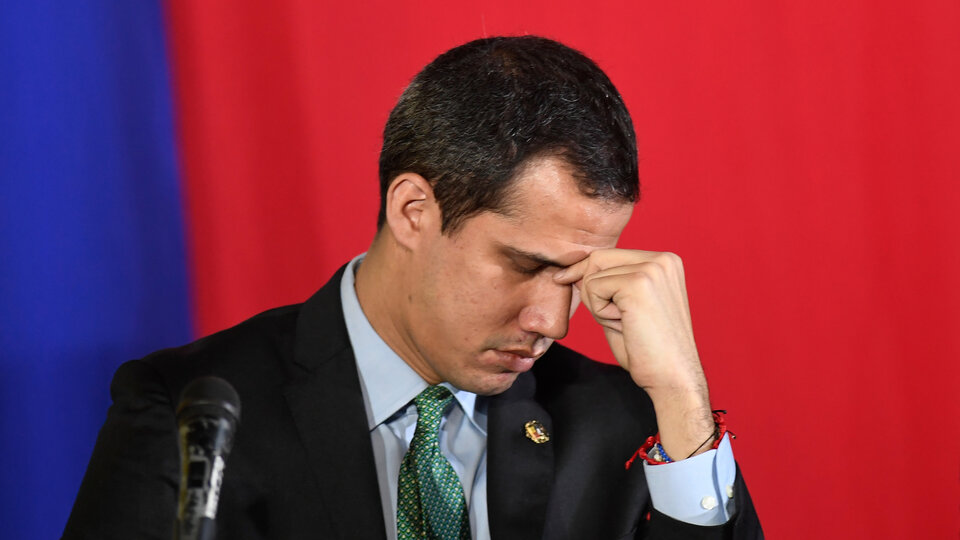
[ad_1]
From Caracas
Venezuela is going through a modification of the political game, both national and international, dimensions that are often inseparable in the current conflict. This reconfiguration is not new and sometimes appears with evidence, as in these days when the new National Assembly is already in function and Juan Guaidó seems to be facing his last reserves, or already exhausted. One of the signs of this situation came from the decision of the European Union not to recognize him as “interim president”. The position was expressed with diplomacy and ardor: Guaidó was described as “representative of the outgoing Assembly”. The Union, by declaring that the Assembly chaired by Guaidó is no longer in force, as claimed by a sector of the opposition, excludes the continuation of the “interim presidency”.
This modification had already been anticipated. The hard positions against the government of Nicolás Maduro, like those of Germany, the Netherlands or France, changed before the new scenario. A relevant question is: was this a lonely European redevelopment or a position agreed upon with the new administration entering the United States? The modification of the map is carried out on several levels at the same time. The United States will certainly maintain Guaidó’s recognition as “interim president” in what was a bipartisan deal from the start. But surely, at the same time as the ratification of this position, will occur the modification of the tactics, of the way of approaching the file of Venezuela, which, obviously, did not give the results expected by Washington.
Other governments will maintain, with the United States, a line of recognition of the “interim presidency”, such as those located in the most right-wing arc in Latin America, such as Colombia, Brazil and Chile, and American allies in foreign policy, such as Canada. , the United Kingdom and Japan. But the decision on how to continue to obtain a change of government in Venezuela will not be a decision of those governments but, as it was from the beginning, exclusively of the United States.
Guaidó is outside the political center, exhausted to fulfill the political goals under which it was built. All the actors know it, whatever their public story. This is why there is an international repositioning and many successive fractures within the Venezuelan opposition, where each leader, party – or party fragment – seeks to position itself in the face of the open scenario and under construction. This is the possible end of a strategy represented in Guaidó, that of a parallel institutionality. The Venezuelan government managed to deactivate it within two years, with a general cost to the economy on which a blockade has deepened, the population, especially the popular sectors and the middle classes, and on politics, which became trench positions.
What will the new scene look like? For the moment, some contours are visible. The speech of the new Assembly, with a Chavist majority, raises both the importance of dialogue and reconciliation and the need for there to be no impunity. Iris Varela, Vice-President of the Legislative Power, said in Thursday’s session that “we have agreed as a board of directors to create a special commission that will investigate actions against the Republic by the directives and certain members of the Assembly during the period 2016-2021 (…) In a month, there must be results and the mandate must come out for justice to act with force ”.
The message was addressed directly to Guaidó, who on January 5 lost his parliamentary immunity. Who on January 23, 2019, then unknown to the country, proclaimed himself president, now knows that his political end is a matter of time. He will remain in a dissolving political capital until he is reduced to Twitter, or he will be arrested by justice. What will it depend on? Political times, possible international dialogues and negotiations where Chavismo has a position of political strength, but of economic weakness.
The government’s commitment to the next stage focuses on trying to bring in private capital, domestic and foreign, into various key areas of the economy. This is what officially started from the anti-blockade law passed in October in the National Constituent Assembly, which stipulates, among other things, that this process of influx of capital will be conducted in a confidential manner to avoid the persecution of the blockade, so To date, there has been no accountability in this regard.
The results of this orientation which began before the law cannot yet be measured. Depending on the efficiency or not, that is to say that they allow an improvement of the incomes in the coffers of the State, of public services, in strategic companies like PDVSA, the government will have more or less urgency to negotiate an easing of the blockade in a possible dialogue / agreement with the United States. The government’s bet is, moreover, that, in the puzzle, this same law and the investment opportunities that it offers, act as an element that pushes towards agreements.
For the moment, these are debates, analyzes and closed doors, but no impacts in a daily life that has been changing for years, with salaries and pensions ranging from two dollars a month in the State to about $ 50 or $ 100 in private companies, which have difficulty supplying water, gas, electricity, and gasoline, and a national currency that declines before the dollar goes from small to macro. This daily life is the main moment for majorities in Venezuela.
.
[ad_2]
Source link
 Naaju Breaking News, Live Updates, Latest Headlines, Viral News, Top Stories, Trending Topics, Videos
Naaju Breaking News, Live Updates, Latest Headlines, Viral News, Top Stories, Trending Topics, Videos